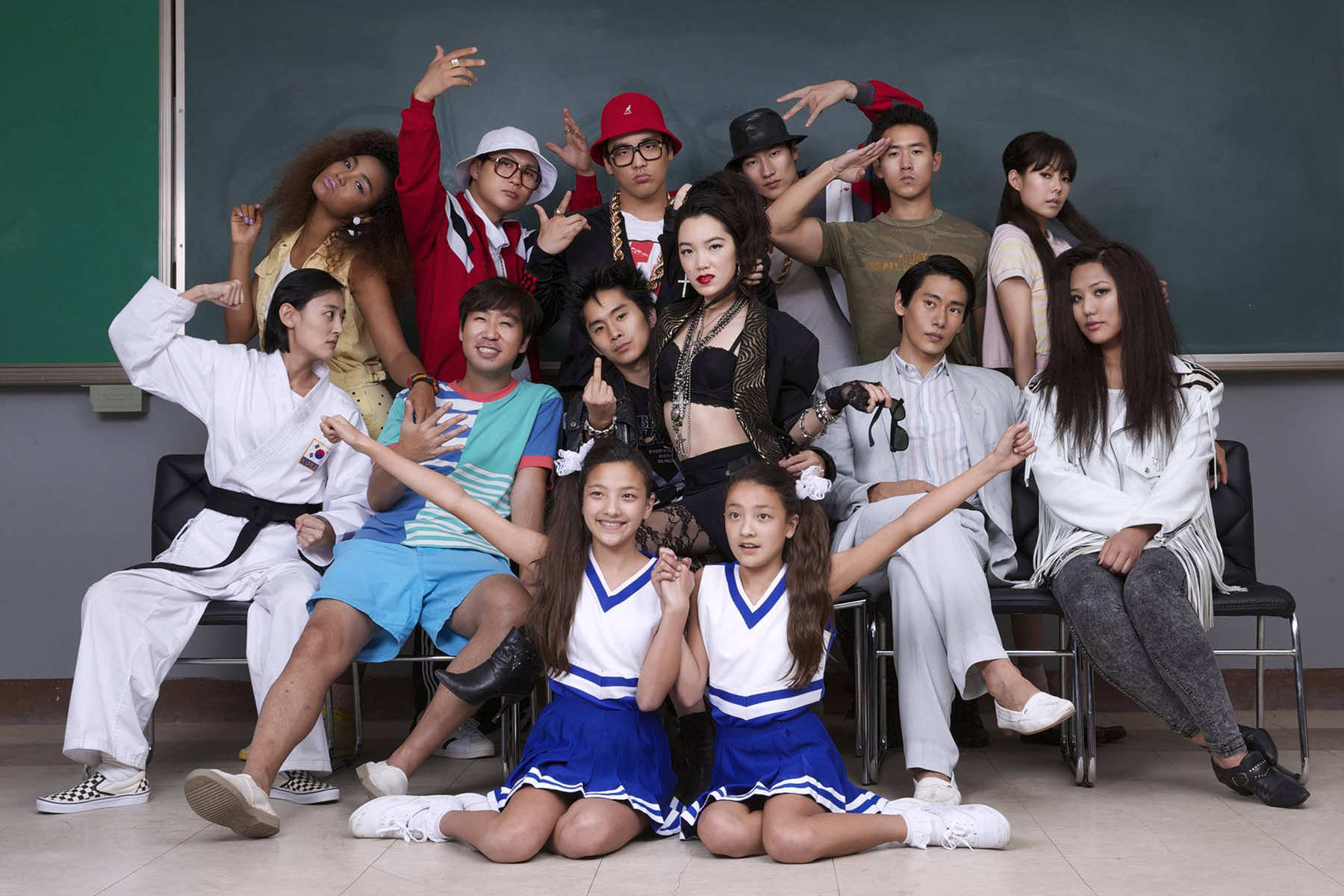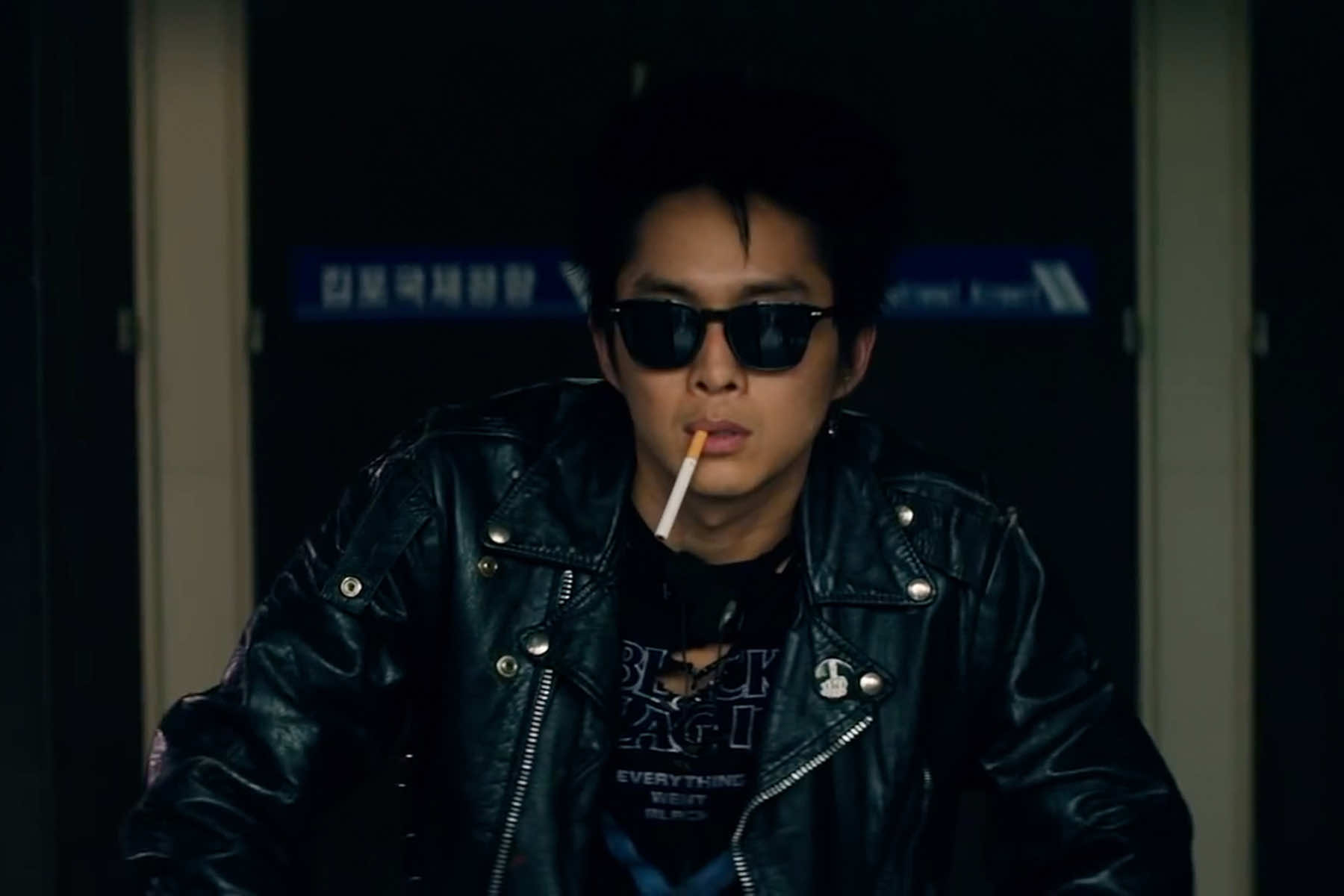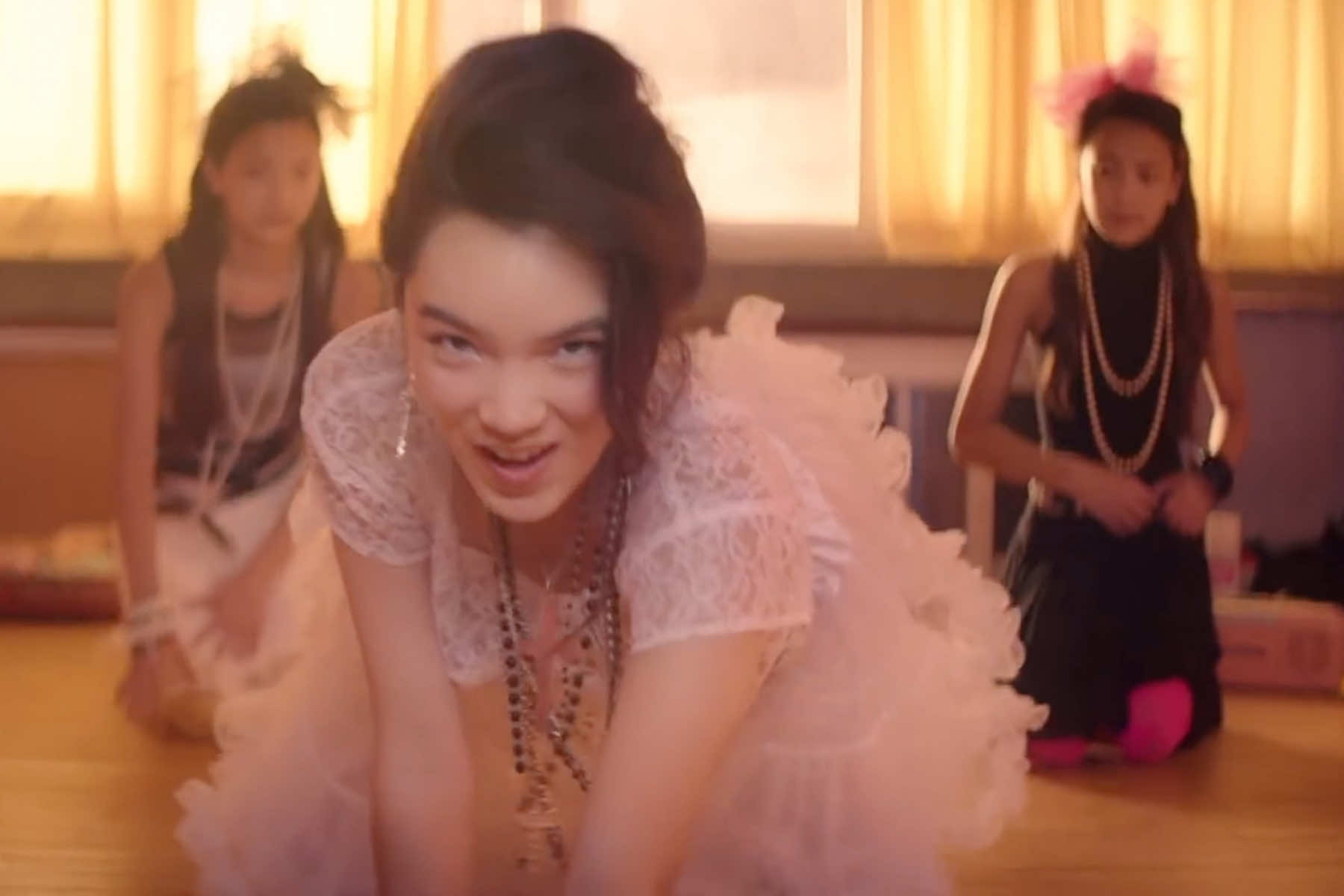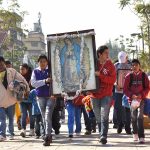
The 2015 film “Seoul Searching,” written, directed, and co-produced by Benson Lee, is a love letter to 1980s teen cinema, while also offering a nuanced exploration of Korean identity and the immigrant experience.
Set against the backdrop of a real-life summer camp from 1986 in South Korea, the film draws directly from the director’s own teenage memories, blending humor, heart, and cultural reflection in a way that resonates with audiences familiar with both Korean and Western cultures.
“When I attended summer school in 1986, I was shocked to meet so many Koreans from other parts of the world. It was the 1980s and the internet didn’t exist, so we were pretty sheltered,” Lee told Milwaukee Independent in a 2016 interview. “Although we had similar faces, we were worlds apart in terms of our culture. But it was our cultural differences that taught me to expand my view of the world, and helped me realize how incredibly diverse it is.”
Often compared to a John Hughes film, “Seoul Searching” emulates the archetypes and storytelling styles of iconic films like “The Breakfast Club” and “Pretty in Pink.” The characters are instantly recognizable, with each fitting neatly into the 1980s teen movie mold: the punk rebel, the athletic jock, the introspective nerd, the femme fatale.
But what makes “Seoul Searching” unique is the layer of cultural tension the characters navigate. All are Korean by ethnicity, but hail from different corners of the world — America, Germany, and Mexico — creating a clash of expectations, both from their host country and their own families.
“American, German, Mexican, or any nationality for that matter, can be represented by all kinds of people outside of what’s considered the norm. Nationality is not an ethnicity but a culture and state of mind,” said Lee. “I want people to feel the desire to travel after they see my film, inspired by how diverse our world actually is.”
The story centers on a summer camp program in Seoul, when the South Korean government attempted to connect second-generation Koreans raised abroad with their ancestral roots. It is at this camp that the teens are forced to confront what it means to be Korean, despite growing up largely removed from the language, customs, and expectations of their parents’ homeland. What follows is a journey of self-discovery, friendships, and tension as these teenagers learn more about themselves and their cultural heritage.
“Growing up Korean in the United States was an adventure, because my parents were first-generation immigrants from South Korea,” said Lee. “What made it interesting and challenging is how American and Korean culture are quite often at odds. I felt more comfortable outside of my home, since I was more familiar with American culture.”
Beneath its playful surface, “Seoul Searching” tackles deep, emotional themes. The film deftly handles the identity struggles of these teenagers, who find themselves straddling two worlds, neither fully accepted in their Western countries nor completely at home in Korea. They face questions of belonging, navigating the challenges of cultural dissonance and parental expectations.
Characters like Sid, a Korean-American punk rocker, or Grace, a pastor’s daughter with a rebellious streak, bring these conflicts to life. They represent the many ways immigrant and diaspora children often find themselves at odds with their parents’ generation, who cling to traditional values while the children seek to carve out their own identities.
The camp’s head counselor, Mr. Kim, plays a pivotal role in pushing the teens toward this self-realization. His stern demeanor contradicts his genuine desire to help these kids reconnect with their Korean roots, even as they resist. The dynamic between the teens and their counselor becomes an encapsulation of the larger generational and cultural conflicts many immigrant families face.
“Sometimes, entering my home was like entering Korea, where the rules were different,” said Lee. “But this seems to be a common theme for people who grew up in a bicultural home, and I‘m grateful to have experienced it because it helped me to always see things through a dual lens. It also helped me to be more open to other cultures.”
“Seoul Searching” stands out not only for its cultural exploration but for its ability to do so with humor. While the themes are serious, the film maintains a lighthearted, sometimes irreverent tone. The script is peppered with sharp wit, allowing the characters to poke fun at their cultural differences and the stereotypes they both embody and reject. The balance between levity and sincerity keeps the film engaging without ever becoming preachy.
“I think John Hughes would have loved this film. I did my best to strike a balance between comedy and drama, which is what he was so skillful at. ‘The Breakfast Club’ is my all-time favorite teen movie because I loved how Hughes took the world of the teen so seriously and treated his characters with such deep respect,” said Lee.
The visual and musical style of the film further enhance its nostalgic charm. The 1980s setting, complete with a retro soundtrack and period fashion, transports viewers to a time of neon colors and carefree teenage rebellion, adding to the sense of fun. Yet, the emotional depth ensures that “Seoul Searching” remains more than just an homage to a bygone era of cinema.
Beyond the entertaining plot and 1980s references, “Seoul Searching” also serves an important role in cinematic representation. Korean-American and Korean diaspora stories are still underrepresented in mainstream films, especially in genres like teen dramedies. The film offers a refreshing take, bringing visibility to the complexities of growing up between two cultures. For many first- and second-generation immigrants, the film captures the bittersweet reality of trying to bridge two worlds, navigating the desire to belong while feeling perpetually foreign.
“The one thing I disliked about ‘80s teen movies was the portrayal of Asian characters. We were usually the oriental nerd that was the supporting character, rarely the lead, who tended to be the butt of all jokes, a character no one wanted to identify with,” Lee added. “Asians have traditionally been portrayed as stereotypes on the big screen and had very little presence in mainstream cinema.”
Until “Crazy Rich Asians” in 2018, only two major Hollywood films in 25 years had an all-Asian American cast, “The Joy Luck Club” (1993) and “Better Luck Tomorrow” (2003). Lee said it was the reoccurring Asian stereotypes and the lack of Asian actors given leading roles that inspired him to make a movie that contained authentic Asian characters with depth and showed that Asians are normal human beings.
Ultimately, “Seoul Searching” is a film that goes beyond its nostalgic references and coming-of-age framework. It taps into universal themes of identity, belonging, and generational conflict that resonate with anyone who has ever struggled to find their place in the world. Whether viewers have personal connections to the immigrant experience or not, the film’s heart, humor, and exploration of selfhood make it a compelling watch.
- Exploring Korea: Stories from Milwaukee to the DMZ and across a divided peninsula
- A pawn of history: How the Great Power struggle to control Korea set the stage for its civil war
- Names for Korea: The evolution of English words used for its identity from Gojoseon to Daehan Minguk
- SeonJoo So Oh: Living her dream of creating a "folded paper" bridge between Milwaukee and Korean culture
- A Cultural Bridge: Why Milwaukee needs to invest in a Museum that celebrates Korean art and history
- Korean diplomat joins Milwaukee's Korean American community in celebration of 79th Liberation Day
- John T. Chisholm: Standing guard along the volatile Korean DMZ at the end of the Cold War
- Most Dangerous Game: The golf course where U.S. soldiers play surrounded by North Korean snipers
- Triumph and Tragedy: How the 1988 Seoul Olympics became a battleground for Cold War politics
- Dan Odya: The challenges of serving at the Korean Demilitarized Zone during the Vietnam War
- The Korean Demilitarized Zone: A border between peace and war that also cuts across hearts and history
- The Korean DMZ Conflict: A forgotten "Second Chapter" of America's "Forgotten War"
- Dick Cavalco: A life shaped by service but also silence for 65 years about the Korean War
- Overshadowed by conflict: Why the Korean War still struggles for recognition and remembrance
- Wisconsin's Korean War Memorial stands as a timeless tribute to a generation of "forgotten" veterans
- Glenn Dohrmann: The extraordinary journey from an orphaned farm boy to a highly decorated hero
- The fight for Hill 266: Glenn Dohrmann recalls one of the Korean War's most fierce battles
- Frozen in time: Rare photos from a side of the Korean War that most families in Milwaukee never saw
- Jessica Boling: The emotional journey from an American adoption to reclaiming her Korean identity
- A deportation story: When South Korea was forced to confront its adoption industry's history of abuse
- South Korea faces severe population decline amid growing burdens on marriage and parenthood
- Emma Daisy Gertel: Why finding comfort with the "in-between space" as a Korean adoptee is a superpower
- The Soul of Seoul: A photographic look at the dynamic streets and urban layers of a megacity
- The Creation of Hangul: A linguistic masterpiece designed by King Sejong to increase Korean literacy
- Rick Wood: Veteran Milwaukee photojournalist reflects on his rare trip to reclusive North Korea
- Dynastic Rule: Personality cult of Kim Jong Un expands as North Koreans wear his pins to show total loyalty
- South Korea formalizes nuclear deterrent strategy with U.S. as North Korea aims to boost atomic arsenal
- Tea with Jin: A rare conversation with a North Korean defector living a happier life in Seoul
- Journalism and Statecraft: Why it is complicated for foreign press to interview a North Korean defector
- Inside North Korea’s Isolation: A decade of images show rare views of life around Pyongyang
- Karyn Althoff Roelke: How Honor Flights remind Korean War veterans that they are not forgotten
- Letters from North Korea: How Milwaukee County Historical Society preserves stories from war veterans
- A Cold War Secret: Graves discovered of Russian pilots who flew MiG jets for North Korea during Korean War
- Heechang Kang: How a Korean American pastor balances tradition and integration at church
- Faith and Heritage: A Pew Research Center's perspective on Korean American Christians in Milwaukee
- Landmark legal verdict by South Korea's top court opens the door to some rights for same-sex couples
- Kenny Yoo: How the adversities of dyslexia and the war in Afghanistan fueled his success as a photojournalist
- Walking between two worlds: The complex dynamics of code-switching among Korean Americans
- A look back at Kamala Harris in South Korea as U.S. looks ahead to more provocations by North Korea
- Jason S. Yi: Feeling at peace with the duality of being both an American and a Korean in Milwaukee
- The Zainichi experience: Second season of “Pachinko” examines the hardships of ethnic Koreans in Japan
- Shadows of History: South Korea's lingering struggle for justice over "Comfort Women"
- Christopher Michael Doll: An unexpected life in South Korea and its cross-cultural intersections
- Korea in 1895: How UW-Milwaukee's AGSL protects the historic treasures of Kim Jeong-ho and George C. Foulk
- "Ink. Brush. Paper." Exhibit: Korean Sumukhwa art highlights women’s empowerment in Milwaukee
- Christopher Wing: The cultural bonds between Milwaukee and Changwon built by brewing beer
- Halloween Crowd Crush: A solemn remembrance of the Itaewon tragedy after two years of mourning
- Forgotten Victims: How panic and paranoia led to a massacre of refugees at the No Gun Ri Bridge
- Kyoung Ae Cho: How embracing Korean heritage and uniting cultures started with her own name
- Complexities of Identity: When being from North Korea does not mean being North Korean
- A fragile peace: Tensions simmer at DMZ as North Korean soldiers cross into the South multiple times
- Byung-Il Choi: A lifelong dedication to medicine began with the kindness of U.S. soldiers to a child of war
- Restoring Harmony: South Korea's long search to reclaim its identity from Japanese occupation
- Sado gold mine gains UNESCO status after Tokyo pledges to exhibit WWII trauma of Korean laborers
- The Heartbeat of K-Pop: How Tina Melk's passion for Korean music inspired a utopia for others to share
- K-pop Revolution: The Korean cultural phenomenon that captivated a growing audience in Milwaukee
- Artifacts from BTS and LE SSERAFIM featured at Grammy Museum exhibit put K-pop fashion in the spotlight
- Hyunjoo Han: The unconventional path from a Korean village to Milwaukee’s multicultural landscape
- The Battle of Restraint: How nuclear weapons almost redefined warfare on the Korean peninsula
- Rejection of peace: Why North Korea's increasing hostility to the South was inevitable
- WonWoo Chung: Navigating life, faith, and identity between cultures in Milwaukee and Seoul
- Korean Landmarks: A visual tour of heritage sites from the Silla and Joseon Dynasties
- South Korea’s Digital Nomad Visa offers a global gateway for Milwaukee’s young professionals
- Forgotten Gando: Why the autonomous Korean territory within China remains a footnote in history
- A game of maps: How China prepared to steal Korean history to prevent reunification
- From Taiwan to Korea: When Mao Zedong shifted China’s priority amid Soviet and American pressures
- Hoyoon Min: Putting his future on hold in Milwaukee to serve in his homeland's military
- A long journey home: Robert P. Raess laid to rest in Wisconsin after being MIA in Korean War for 70 years
- Existential threats: A cost of living in Seoul comes with being in range of North Korea's artillery
- Jinseon Kim: A Seoulite's creative adventure recording the city’s legacy and allure through art
- A subway journey: Exploring Euljiro in illustrations and by foot on Line 2 with artist Jinseon Kim
- Seoul Searching: Revisiting the first film to explore the experiences of Korean adoptees and diaspora





















